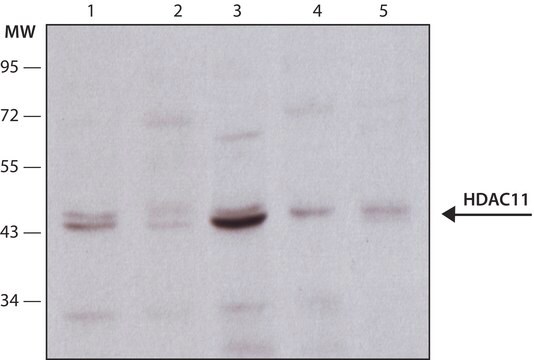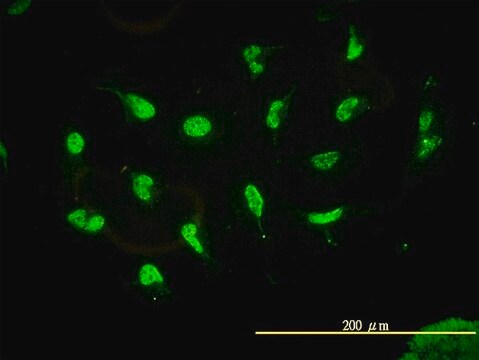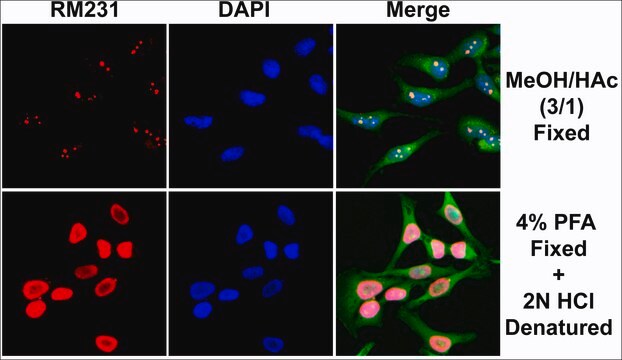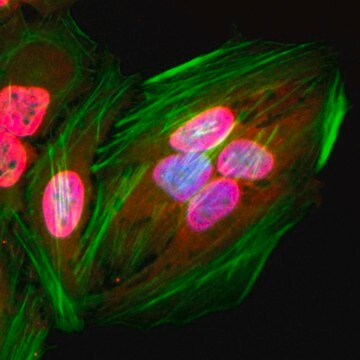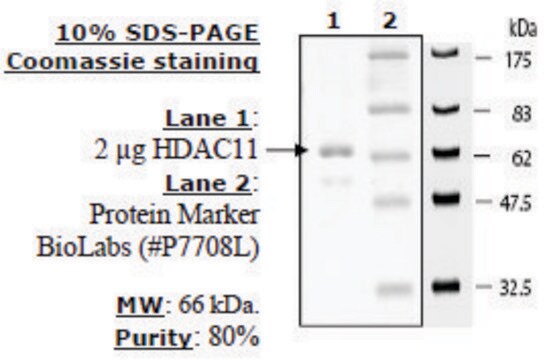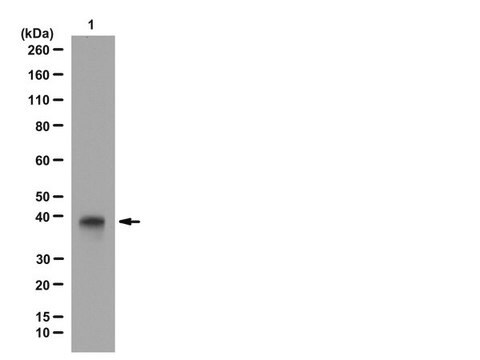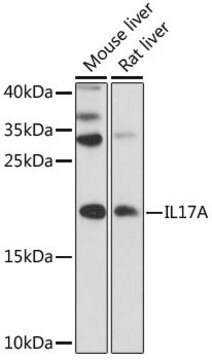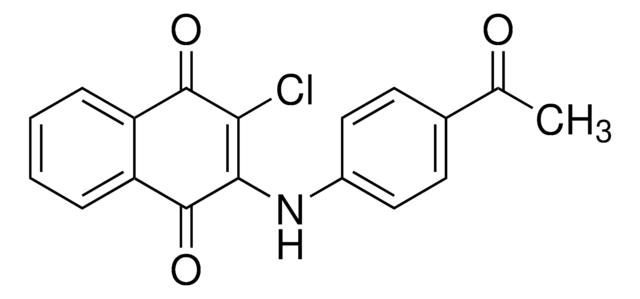07-1548
Anti-HDAC11 Antibody
from rabbit
Synonym(s):
histone deacetylase 11
About This Item
Recommended Products
biological source
rabbit
Quality Level
antibody form
purified antibody
antibody product type
primary antibodies
clone
polyclonal
species reactivity
human, mouse
technique(s)
ELISA: suitable
immunohistochemistry: suitable
western blot: suitable
NCBI accession no.
UniProt accession no.
shipped in
wet ice
target post-translational modification
unmodified
Gene Information
human ... HDAC11(79885)
mouse ... Hdac11(232232)
General description
Specificity
Immunogen
Application
This antibody has been shown by an outside laboratory to be suitable for ELISA (1:1000).
Immunohistochemistry:
This antibody has been shown by an outside laboratory to be suitable for histochemistry using formalin fixed, paraffin embedded human hepatocarcinoma tissue (1:50-1:100).
Epigenetics & Nuclear Function
Cell Cycle, DNA Replication & Repair
Quality
Detection of HDAC11 in 10 µg of Mouse Brain lysate by Western blot analysis.
Target description
Physical form
Storage and Stability
Analysis Note
Mouse Brain cell lysate
Other Notes
Disclaimer
Not finding the right product?
Try our Product Selector Tool.
Storage Class Code
10 - Combustible liquids
WGK
WGK 2
Flash Point(F)
Not applicable
Flash Point(C)
Not applicable
Regulatory Listings
Regulatory Listings are mainly provided for chemical products. Only limited information can be provided here for non-chemical products. No entry means none of the components are listed. It is the user’s obligation to ensure the safe and legal use of the product.
JAN Code
07-1548:
Certificates of Analysis (COA)
Search for Certificates of Analysis (COA) by entering the products Lot/Batch Number. Lot and Batch Numbers can be found on a product’s label following the words ‘Lot’ or ‘Batch’.
Already Own This Product?
Find documentation for the products that you have recently purchased in the Document Library.
Our team of scientists has experience in all areas of research including Life Science, Material Science, Chemical Synthesis, Chromatography, Analytical and many others.
Contact Technical Service